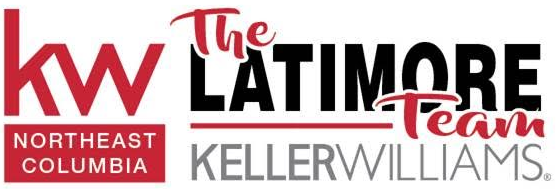NEW YORK (AP) -- The first financial challenge when you're thinking about buying a home is how to come up with the down payment.
Traditionally, homebuyers need a down payment between 10 percent and 20 percent of the purchase price. During the housing bubble that figure dropped sharply, even down to zero. But loans that didn't require a down payment are now seen as one of the culprits of the mortgage crisis, because they allowed people to buy homes they couldn't afford.
These days, it's rare to get a mortgage without contributing some of your own cash. And if you're trying to buy a home that was foreclosed or through a short sale -- where the purchase price is below the amount owed on the house -- a larger down payment can speed up the process.
Jeff Kitchen, a Realtor in Beaver Dam, Wis., said this spring buyers in his area are typically putting 5 percent down and seeking a loan backed by the Federal Housing Authority. A low credit score, however, may drive up the size of the required downpayment. ''Right now lending practices are considerably more stringent than they were,'' Kitchen said.
Here are some tips to save up your down payment.
1. Decide how much house you can afford.
The first step is to set your savings goal. Research home prices and determine how much you can afford. Calculators can be found on most bank websites and on the SC Housing site at
http://www.schousing.com/loancalculator/default.asp.*
The median price of existing homes in the U.S. is $165,100, according to the National Association of Realtors [$140,000 in South Carolina per the South Carolina Realtors*]. A 5 percent down payment for a home that price would be $8,255. A 20 percent downpayment would be $33,020. If you're able to save 20 percent, lenders will not require you to purchase Private Mortgage Insurance, which will reduce your monthly expenses.
2. Set up a savings plan.
You'll also need to create a savings plan and set a deadline for reaching your goal. One method is to find the difference between your current housing costs and your projected monthly mortgage payment, and put that much away each month.
This system has the advantage of allowing you to decide if you really earn enough to afford the home you want. ''In some cases, if a homeowner is paying a low rent, doubling that payment can be quite a shock, even if the bank says, 'You meet our guidelines,''' said Mike Hines, homeownership services director for the Sacramento, Calif., office of the NeighborWorks America.
Open a separate savings account for your down payment to minimize the temptation to tap the money for other needs. Also setting up automatic transfers to your new account will lessen the chance you'll spend the money elsewhere.
3. Pare back expenses and raise cash.
Review your spending habits and determine where you can find extra cash. If you're determined to buy a house as soon as possible, try living like a tightwad. Start by putting away the credit cards.
Then cut out cable TV, switch to a less expensive cell phone plan and reexamine other aspects of your spending until you've pared back to just necessities. Use coupons at the grocery store and stay away from the mall. Hold a garage sale or sell unused items online. There are dozens of books and blogs you can turn to for frugal living advice that can help accelerate your savings.
4. Borrow from your 401(k).
Most 401(k) plans allow participants to borrow from their accounts to finance a downpayment. Some advantages to these loans include an easier acceptance process, generally lower interest rates than bank loans and the fact that you'll be paying the interest to yourself. Although they don't count toward your overall borrowing on your credit score, a mortgage lender may note such a loan as part of your overall debt load.
A key drawback is that the money will not be growing for your retirement, and if you leave or lose your job, you'll have to pay the entire amount back or face stiff penalties plus taxes.
5. You may qualify for assistance.
If you're hoping to take advantage of the down market but haven't got that much saved, you may be able to find help through various programs.
There are FHA-backed programs in every state. Most are aimed at low- and moderate-income, first-time homebuyers and usually require recipients to make some contribution. Visit the agency's website at
www.fha.gov to learn if you qualify for a program in your area.
The Veterans Administration and the Agriculture Department are among other government agencies that offer down payment assistance.
The New York Times - April 19, 2010
*Original article modified to include South Carolina data.
The Latimore Team’s Real Estate Directory
The Latimore Team
Donald & LaToya Latimore
Residential Listing & Home Buyer Specialists
800-836-3202 ext 6001
Email: HomeSales@LatimoreTeam.com
